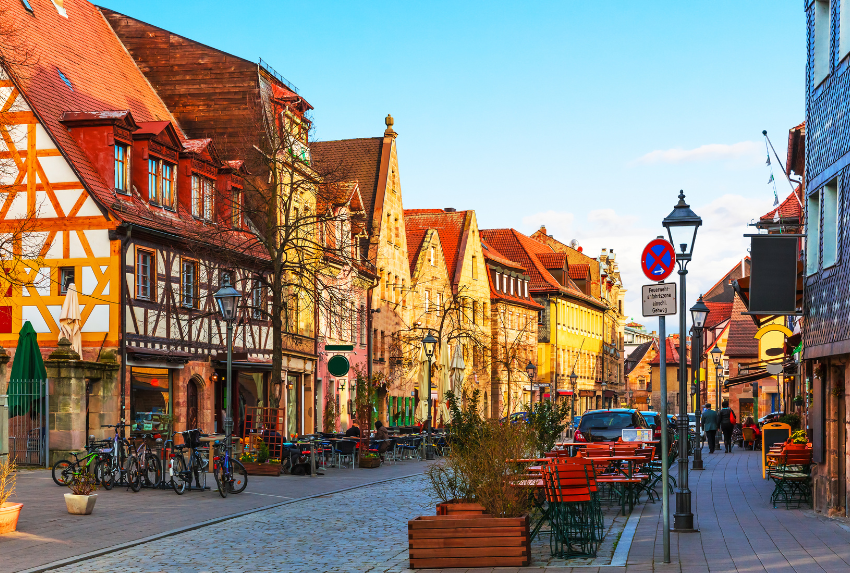In recent months, German authorities have been carefully investigating potential Russian influence in Germany, especially following a series of violent attacks across the country. These incidents have raised significant concerns regarding the role of foreign powers, particularly Russia, in influencing national security. Security officials are closely scrutinizing whether Russian influence in Germany is playing a part in these attacks and what it means for the future of German security and political stability.
- What Are the Possible Links Between Russia and the Attacks?
- How Does Russian Influence Impact Germany's National Security?
- What Are German Officials Doing About It?
- Is Hybrid Warfare a Serious Threat?
- What Can Be Done to Counter Russian Influence in Germany?
- Conclusion: Addressing the Growing Threat of Russian Influence in Germany
What Are the Possible Links Between Russia and the Attacks?
One of the most high-profile cases in the series of attacks occurred in Mannheim in May 2024. A 26-year-old Afghan man was admitted to carrying out a knife attack that targeted anti-Islam activist Michael Stürzenberger. Tragically, the attack resulted in the death of a police officer. The attack, which took place just days before the European elections, has raised alarms within German security circles about possible foreign involvement.
Recent reports have indicated that suspicious internet searches originating from Russia could be linked to the attack. These included searches for terms such as “terror attack in Mannheim” and “Michael Stürzenberger stabbed” just days before the event took place. Digital intelligence experts have pointed out that such searches are highly unusual and may not be a coincidence. Steven Broschart, a digital intelligence analyst, explained, “It’s pretty unlikely that we’re talking about a coincidence here.” He also highlighted searches for webcams in Mannheim’s market square, which occurred near the date of the attack.
These findings have prompted further scrutiny of the possible connection between Russian influence in Germany and the attack. Although it is not yet clear whether Russia was directly involved, the nature of the searches raises questions about foreign actors exploiting domestic political tensions in Germany.
How Does Russian Influence Impact Germany's National Security?
In the aftermath of the Mannheim attack, other violent incidents occurred in cities such as Aschaffenburg and Munich in 2025. These attacks coincided with a rise in support for far-right political parties like Alternative for Germany (AfD), known for their anti-immigration and nationalist views. This correlation has led security experts to wonder if Russian influence in Germany is playing a role in exacerbating internal divisions and fueling political instability.
The far-right political climate in Germany could be a prime target for foreign interference, as extremist movements are often more susceptible to external manipulation. By supporting or amplifying far-right ideologies, Russia could exploit existing societal divisions to weaken Germany’s democratic institutions and influence its political landscape.
The nature of Russian influence in Germany is seen as part of a broader hybrid warfare strategy, which includes cyberattacks, disinformation campaigns, and covert operations. These tactics are designed to undermine trust in democratic processes, provoke social unrest, and destabilize governments. Hybrid warfare tactics are a clear threat to Germany’s national security and have become an increasing focus of intelligence agencies across Europe.
What Are German Officials Doing About It?
While German authorities have not yet made definitive conclusions about the links between the Russian internet searches and the Mannheim attack, they have made it clear that the issue of foreign influence is being taken very seriously. A spokesperson for the German interior ministry stated that they are investigating all potential avenues, including the possibility of Russian influence in Germany. However, the spokesperson also emphasized that there were no “clear indications” of direct Russian involvement at this stage.
The interior ministry has made it clear that the investigation is ongoing and that German authorities are looking into all possible foreign interference in the country’s domestic affairs. This includes potential foreign financing or influence over extremist groups, as well as the manipulation of public opinion through disinformation campaigns.
Despite the cautious response from some German officials, former BND employee Gerhard Conrad has urged the government not to dismiss these concerns lightly. He warned that it would be “naive” to ignore the possibility of Russian influence in Germany, particularly in the form of hybrid warfare tactics that could destabilize the country. Conrad’s comments emphasize the need for continued vigilance in addressing potential foreign interference and the importance of strengthening national security measures.
Is Hybrid Warfare a Serious Threat?
Hybrid warfare represents a complex set of tactics used by state and non-state actors to achieve strategic goals without direct military confrontation. In the case of Russian influence in Germany, this could involve a combination of cyberattacks, disinformation campaigns, economic pressure, and covert actions aimed at influencing public opinion and political outcomes.
Germany has already witnessed the disruptive effects of hybrid warfare tactics in recent years, including cyberattacks on critical infrastructure, efforts to influence elections, and the use of disinformation to divide public opinion. In 2024, Russian operatives were reportedly involved in cyberattacks targeting German political parties and institutions, further demonstrating the evolving nature of foreign interference.
Hybrid warfare tactics are designed to be difficult to trace and can be highly effective in undermining the stability of democratic institutions. As such, Russian influence in Germany is seen as a significant and growing threat, particularly as Russia has demonstrated its willingness to interfere in the political processes of other nations, including the United States and European Union member states.
In light of these threats, German officials are prioritizing efforts to bolster cybersecurity, improve counterintelligence capabilities, and strengthen domestic political resilience. These measures are necessary to protect against the evolving nature of hybrid warfare and to ensure the continued security of the nation.
What Can Be Done to Counter Russian Influence in Germany?
To counter Russian influence in Germany effectively, a multifaceted approach will be required. The first step is enhancing Germany’s digital intelligence and cybersecurity capabilities. By improving the ability to detect and respond to cyberattacks, Germany can reduce its vulnerability to foreign interference in critical sectors like energy, telecommunications, and finance.
Furthermore, efforts must be made to combat disinformation and media manipulation. As evidenced by the suspicious internet searches before the Mannheim attack, foreign actors can use digital platforms to spread propaganda, sow division, and manipulate public opinion. To combat this, Germany must strengthen media literacy programs, increase public awareness of disinformation campaigns, and hold social media platforms accountable for allowing the spread of false information.
Another key element in countering Russian influence in Germany is fostering greater cooperation between intelligence agencies, both domestically and internationally. Germany must work closely with its European allies to share intelligence, coordinate efforts to combat foreign interference, and strengthen collective security against hybrid warfare tactics.
Finally, Germany must remain vigilant in monitoring the political landscape for signs of external influence. This includes tracking potential foreign financing of extremist groups, as well as detecting attempts to manipulate elections or public opinion through covert means.
Conclusion: Addressing the Growing Threat of Russian Influence in Germany
As Germany continues to grapple with the possibility of Russian influence in Germany, it is clear that the threat of foreign interference is not only a national issue but also a broader European concern. The rise of hybrid warfare tactics, including cyberattacks, disinformation campaigns, and covert operations, presents a significant challenge to the security of Germany and other democracies around the world.
While the German government has not yet confirmed direct links between Russia and the recent attacks, it is clear that Russian influence in Germany is a growing threat that requires immediate attention. Through enhanced cybersecurity, increased cooperation between intelligence agencies, and public education on the dangers of disinformation, Germany can better protect itself from foreign interference and safeguard its democratic processes.
The situation serves as a reminder that, in the digital age, security threats are more complex and multifaceted than ever before. As Germany continues to confront the possibility of hybrid warfare, it must take proactive steps to defend its citizens, institutions, and values from external threats.








